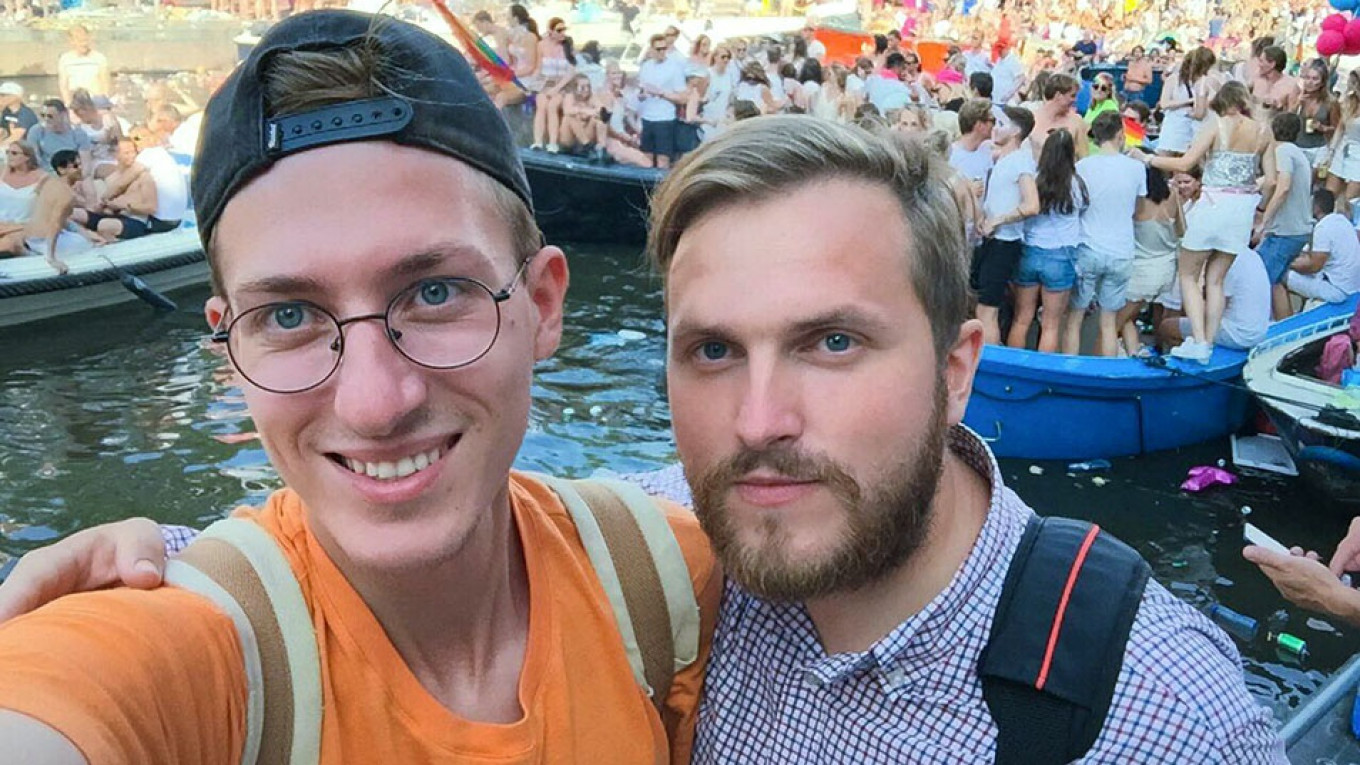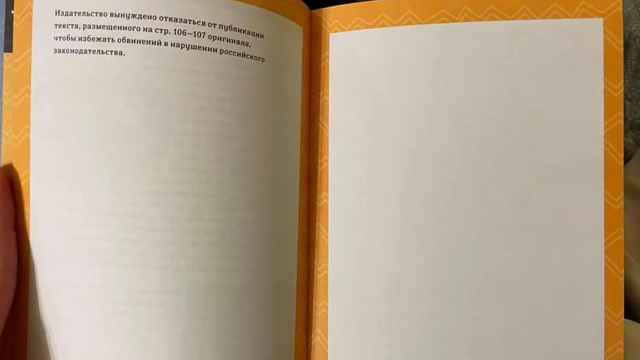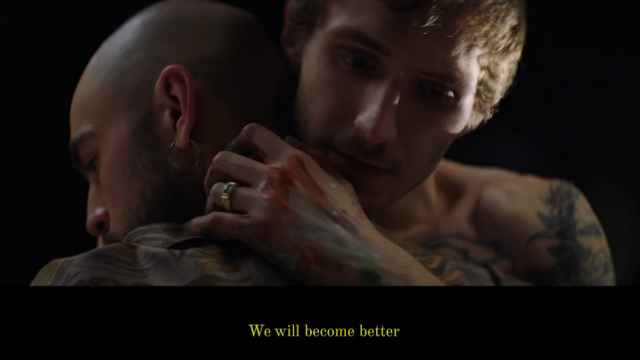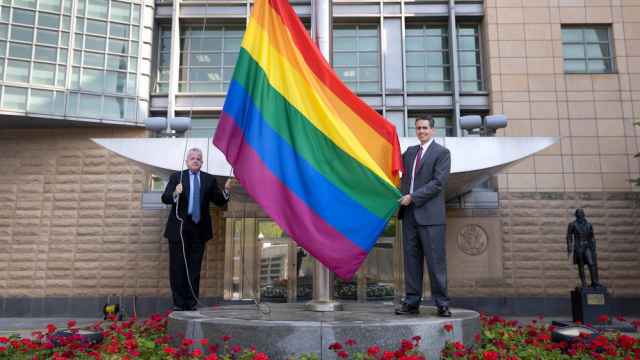The couple is not yet at ease yet in their new home. Although the men are legal residents of the Netherlands as of this month, they are worried that someone could still come for them.
“We try not to talk to anybody who speaks Russian who might be able to call home and say where we are,” said Pavel Stotsko during a phone interview with both men from an unidentified location.
In January this year, Stotsko and Yevgeny Voitsekhovsky, both 28, fled Russia. Their marriage was widely reported as the first same-sex union to be recognized in the country due to a legal loophole (they had tied the knot earlier in Copenhagen).
But after they started receiving threats and police warned them that their protection couldn’t be guaranteed, they decided to flee. Since, they have avoided speaking with the media, citing concerns for their safety.
Now, seven months later, the couple gave one of their first interviews to The Moscow Times, in which they described how they fled Russia and started their new lives in the Netherlands. Not all of the details could be independently verified.
In late January, before the men had time to properly say goodbye to their parents, the Russian LGBT Network, an activist group, hastily arranged for the couple to fly one-way to Istanbul because Russian citizens do not need travel visas for Turkey. Their itinerary included a stopover in Amsterdam, and the activist group instructed the men to request asylum there.
Even during the flight, the men said they didn’t feel safe. They were seated at the back of the plane with six men in the row in front of them who, they claim, kept close watch. Scared their fellow travelers were members of Russia’s security services, they told a stewardess.
During the layover in Amsterdam, the flight attendant shepherded them to the front of the plane, let them disembark first and explained how to find the Dutch police.
“We don’t know who these men were,” said Stotsko, referring to the six men on the plane. “But we did feel that they were a threat to us.” (Two security experts on Russia said it would be highly uncharacteristic of Russia’s security services to allocate any resources to following the couple abroad.)
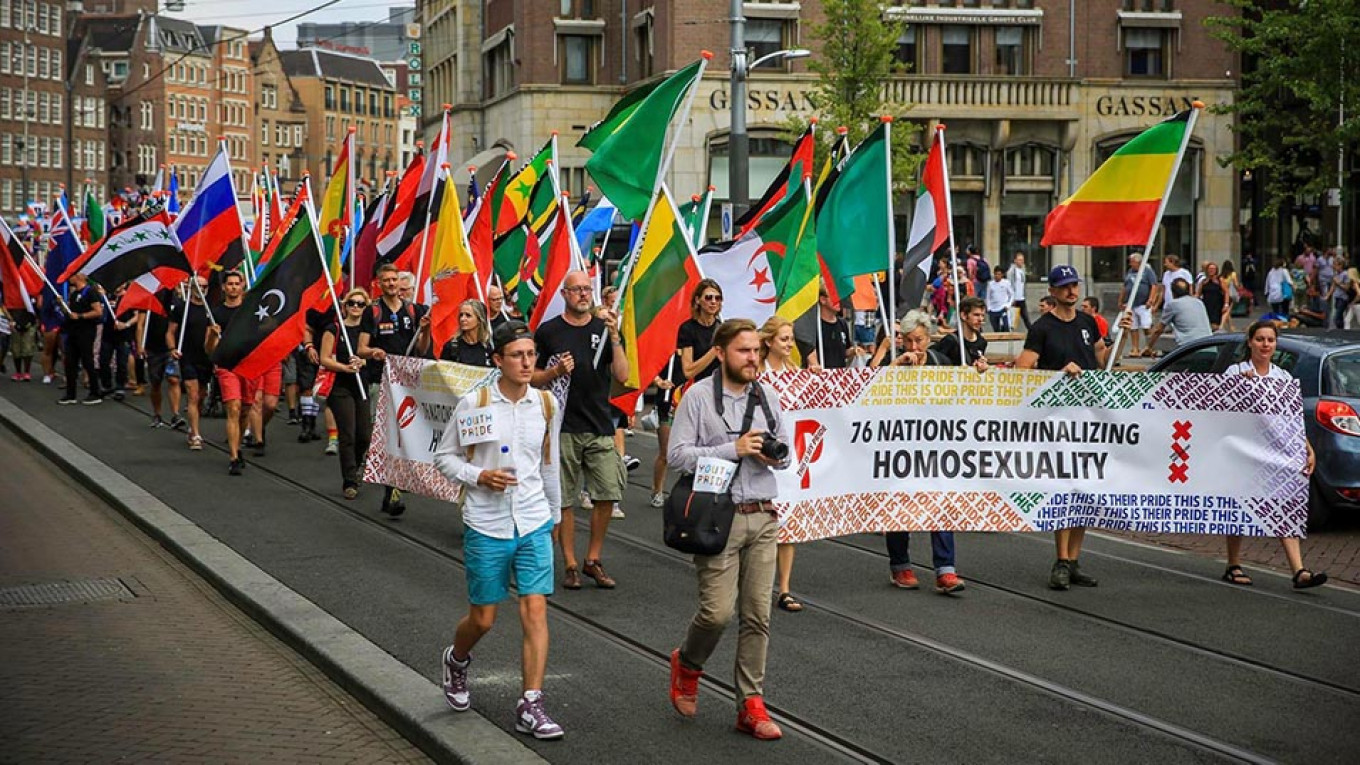
Dutch police detained the men for several days before transferring them to a refugee center specifically where there were no Russian speakers who might give up their location. Although the men were advised to destroy their phones, they decided not to because they didn’t want to lose their contacts.
They have since been transferred to another center (the men would only specify that it was not the capital) where they have their own private room. “We have everything we need,” said Stotsko, who did the majority of the speaking for the couple.
The Dutch government, he said, provides them with a weekly stipend and language courses and will soon help them find their own apartment, too. After three years, they will have to pass exams on Dutch language and culture to begin working towards earning citizenships.
“We decided right away that this is our country,” said Stotsko. “It feeds us, shelters us, and we need to be thankful to it, integrate quickly and start paying back our debt.” The two men have no plans to return to Russia, “even for a day.”
The couple cited the homophobia that has swelled in Russia in recent years, spurred by the so-called “gay propaganda” law passed in 2013, which makes it punishable for gay couples to kiss or carry a rainbow flag in the vicinity of minors. Indeed, earlier this week, a state-funded poll found that nearly two-thirds of Russians believe that an organized group is working to subvert Russia using gay propaganda.
As such, the couple is still learning “how to be like the local gays and lesbians here,” said Stotsko. “They are so open here and no one makes sure they heard you right when you say you’re gay. It makes me so happy to feel like I’m not abnormal.”
Getting their marriage recognized in Russia had been their part to help fight for gay rights, the couple said. But they have nonetheless faced criticism from some central figures in the country’s LGBT community. As the argument goes, the couple went through with the plan as a ploy to emigrate by claiming persecution.
“Of course, like all Russians, we had thought that one day we might leave,” said Stotsko. (Not all Russians want to leave, but a significant chunk do: an estimated 100,000 Russians emigrate each year and a state-run pollster has found that one out of 10 Russians want to.) “But of course we never planned to have to do it this way.”
“Those that criticized us, I understand it almost as jealousy in a way, because no one else had their marriage recognized in Russia before us,” Stotsko continued.
“But after what happened, people wrote to us from all over Russia saying that we gave them hope. That they see some light at the end of the tunnel now.”
Stotsko and Voitsekhovsky, however, are not thinking about Russia. Although in May the latter spent his 28th birthday away from friends and relatives, he said there was nowhere else he would have rather been.
“I was happy because Pasha was with me — my family was with me,” Voitsekhovsky said, using a diminutive for Pavel. “I felt safe.”



